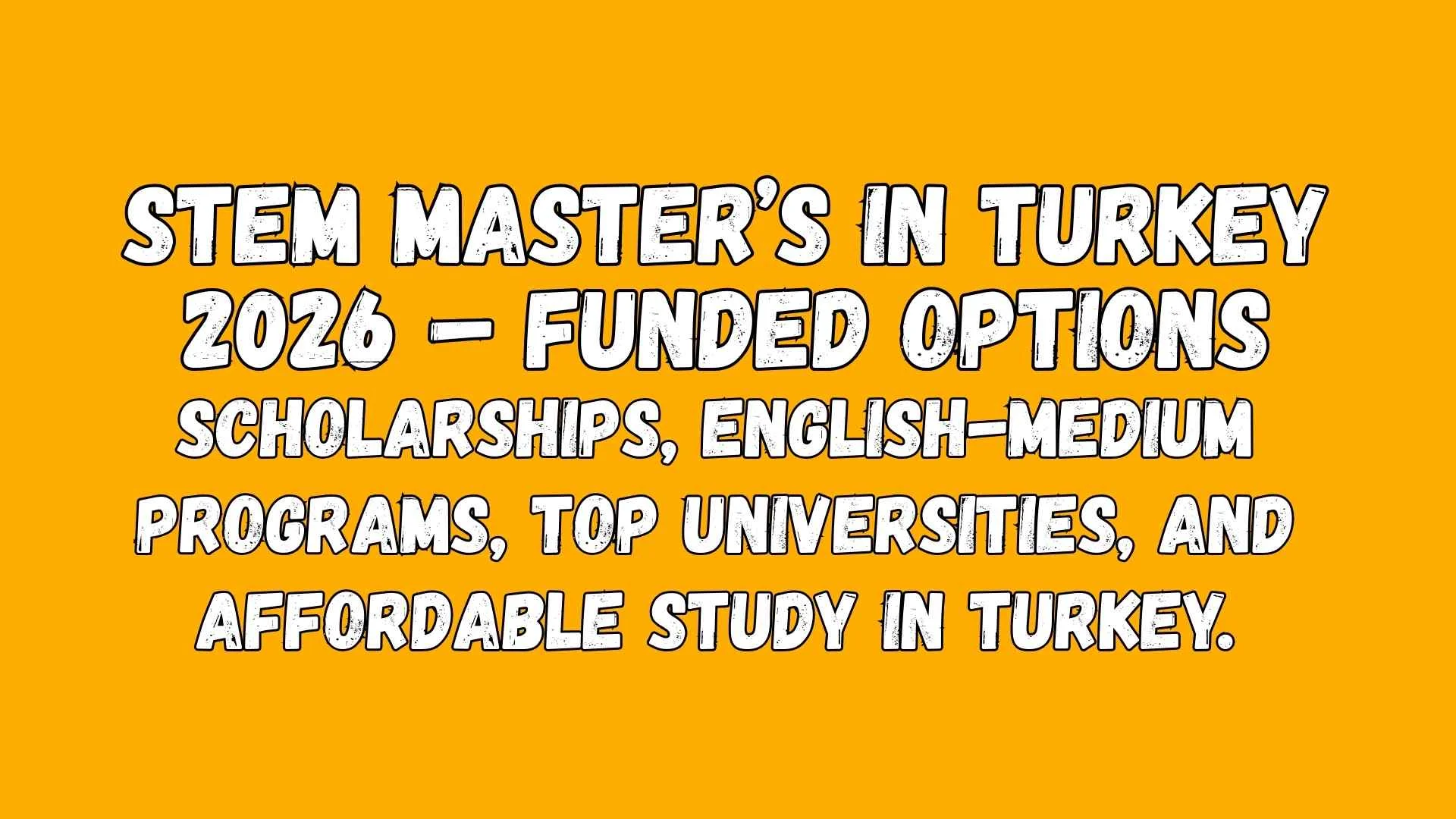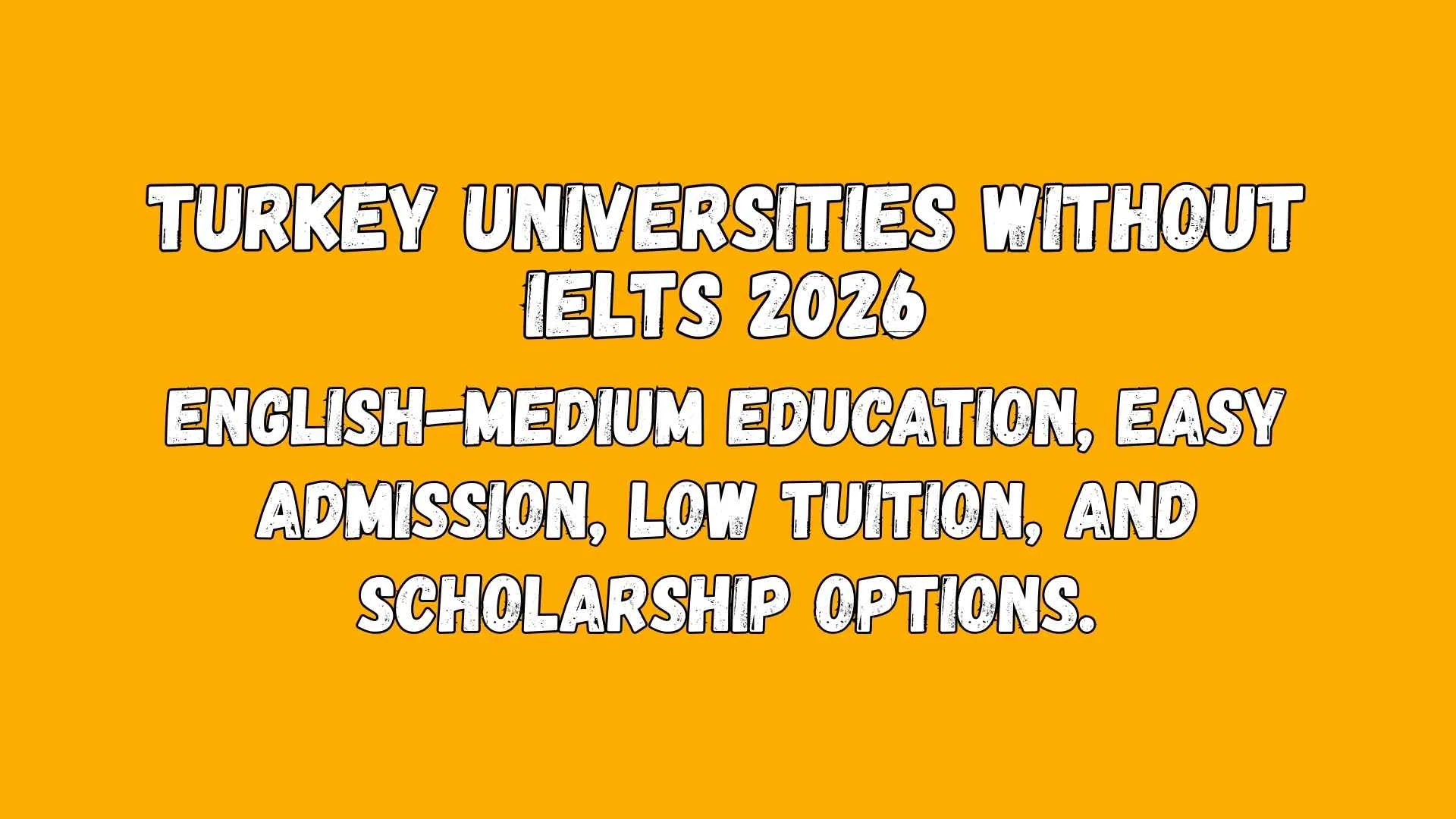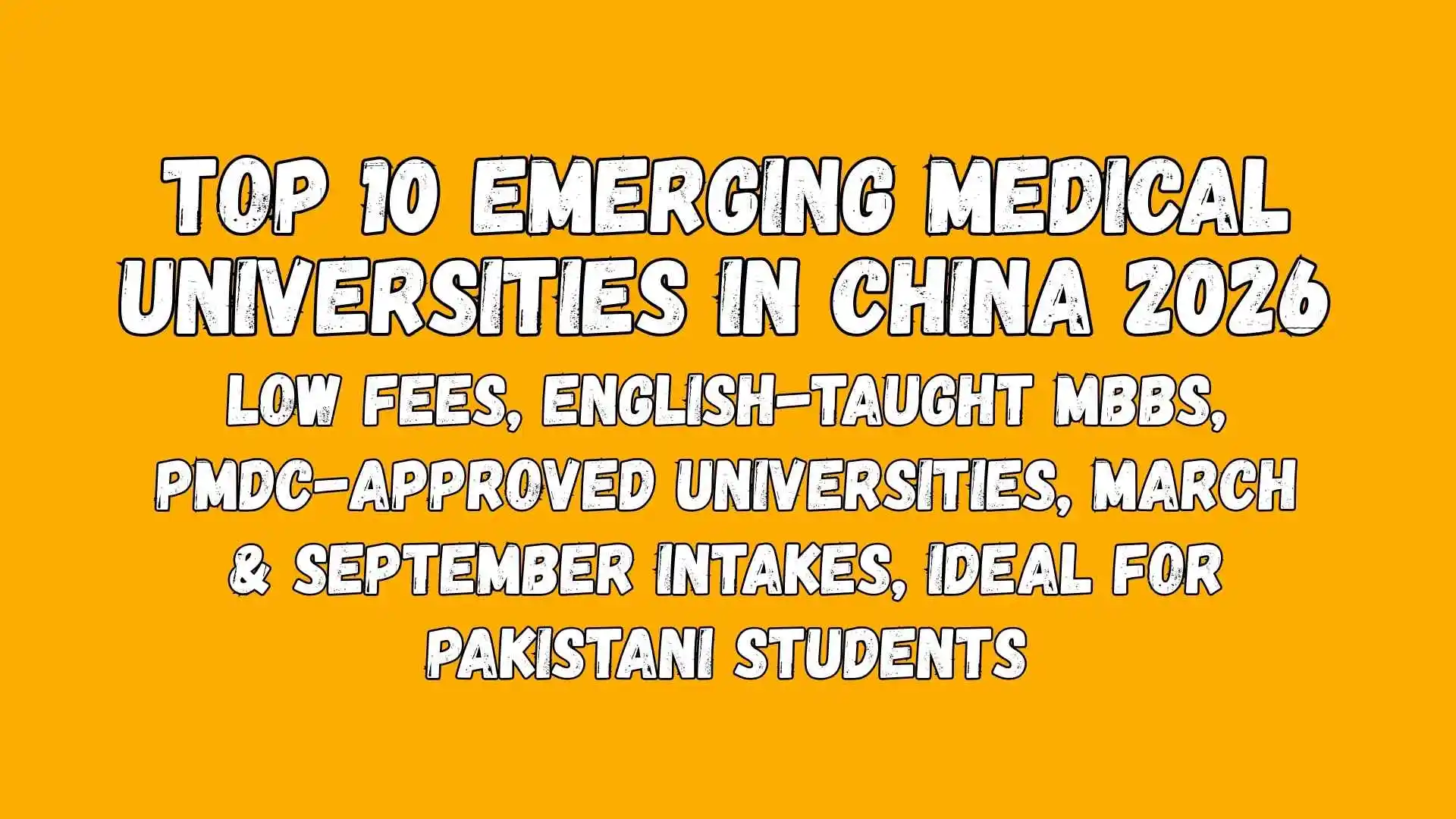Is English Medium MBBS in China?
Home > Is English Medium MBBS in China?

MBBS in China for Pakistani Students – English-Medium Programs
One of the most common questions asked by Pakistani students is: “Can I study MBBS in China in English?” The answer is yes. China offers English-medium MBBS programs specially designed for international students, including those from Pakistan. These programs follow international medical education standards, with textbooks and lectures in English.
The Ministry of Education (MOE) of China approves a list of universities each year that are authorized to teach MBBS in English. Studying in these MOE-approved universities ensures the degree is recognized by PMC (Pakistan Medical Commission), WHO, and other global authorities.
Pakistani students benefit from modern teaching methods, affordable tuition, safe campus environments, and early clinical exposure in affiliated hospitals. Importantly, while classes and exams are in English, students also learn basic Chinese to communicate with patients during hospital training, which strengthens their medical practice skills.
What Does English-Medium MBBS Mean in China?
Many Pakistani students wonder: “If I go to China for MBBS, will I have to study in Chinese?” The answer is No. China offers English-medium MBBS programs, specially made for international students like Pakistanis. In these programs, you don’t need to know Chinese to start your medical studies. Everything is taught in English, which makes it easier to learn and succeed.
1. Teaching and Learning in English
All lectures, books, and exams are in English. Professors and teaching staff use English as the main language to teach international students. The medical course follows global standards, similar to what students learn in other top medical schools worldwide.
2. Approval by Ministry of Education (MOE)
The Chinese Ministry of Education (MOE) has a special list of universities allowed to teach MBBS in English.
Why this matters: Only MOE-approved universities are recognized by the Pakistan Medical Commission (PMC) and other global authorities. Graduates can take important exams such as NLE (Pakistan), USMLE (USA), and PLAB (UK). Learn more about these programs at Soft Consultants.
3. Who Can Apply?
English-medium MBBS is only for international students (from Pakistan, India, Bangladesh, Africa, Middle East, etc.). Local Chinese students study in Chinese-medium MBBS programs separately.
4. Clinical Training and Language Use
In the first 3 years, all teaching is done in English (theory, labs, and exams).
From 4th year onwards (clinical training): Professors and doctors explain medical cases in English. Patients may only speak Chinese, so students are encouraged to learn basic Chinese phrases.
5. Recognition and Career Scope
Studying MBBS in English at an MOE-approved university gives you:
- PMC/NMC Recognition → You can return to Pakistan and take the National Licensing Exam (NLE).
- WHO Recognition → Your degree is accepted by medical authorities worldwide.
- Career Opportunities → After graduation, you can work in Pakistan, the Middle East, USA, UK, or other countries (after passing local licensing exams).
List of MOE-Approved English-Medium MBBS Universities (2025)
| University Name | City / Province | Medium of Teaching | Recognition & Approval |
|---|---|---|---|
| Peking University Health Science Center | Beijing | English | MOE-approved, PMC & WHO recognized |
| Fudan University | Shanghai | English | MOE-approved, WHO listed |
| Shanghai Jiao Tong University | Shanghai | English | Recognized by PMC, WHO, ECFMG |
| Zhejiang University | Hangzhou, Zhejiang | English | PMC-approved, WHO-listed |
| Wuhan University | Wuhan, Hubei | English | MOE-listed, PMC recognized |
| Huazhong University of Science & Technology (Tongji Medical College) | Wuhan, Hubei | English | WHO, PMC, ECFMG |
| Nanjing Medical University | Nanjing, Jiangsu | English | MOE-approved, WHO-listed |
| China Medical University | Shenyang, Liaoning | English | PMC recognized, WHO listed |
| Southern Medical University | Guangzhou, Guangdong | English | MOE-approved, recognized worldwide |
| Jilin University | Changchun, Jilin | English | MOE-listed, WHO, PMC |
Importance of English-Medium MBBS in China for Pakistani Students
For Pakistani students who dream of becoming doctors, choosing the right country and university is a big decision. English-medium MBBS in China has become one of the most popular and practical choices. Below are the key reasons why it holds so much importance:
1. No Language Barrier in Studies
All lectures, textbooks, exams, and communication with professors are in English. Students don’t need to spend extra years learning Chinese before starting medical studies. This makes learning faster and easier, especially for Pakistani students who are already used to English in FSc/college.
2. Approved by Chinese Ministry of Education (MOE)
Only selected universities in China are MOE-approved to teach MBBS in English. This ensures that your MBBS degree is valid internationally and accepted by the Pakistan Medical & Dental Council (PMC). Graduates can also appear in USMLE (USA), PLAB (UK), AMC (Australia), and other licensing exams.
3. PMC and WHO Recognition
Pakistani students are mainly concerned about whether their degree will be accepted back home. MBBS degrees from MOE-approved universities are recognized by PMC and listed by WHO. After graduation, students can appear in the National Licensing Exam (NLE) in Pakistan and start their medical career.
4. Affordable Tuition Fees Compared to Pakistan
In Pakistan, private medical colleges charge very high tuition fees (30–40 lakh PKR per year). In China, annual tuition fees for English-medium MBBS range between 5–8 lakh PKR. This makes it a budget-friendly option for Pakistani families without compromising on quality.
5. International Career Opportunities
Graduates of English-medium MBBS programs in China have the flexibility to work in multiple countries. By clearing international licensing exams, Pakistani students can build careers in the Middle East, USA, UK, Europe, and Pakistan. A Chinese MBBS degree increases global job prospects for doctors.
6. Comfortable Learning Environment for Pakistanis
English-medium MBBS programs are designed exclusively for international students (Pakistani, Indian, African, Arab, etc.). Pakistani students study with other foreign classmates, making it easier to adapt and feel at home. Many universities also offer Halal food, prayer facilities, and Pakistani student communities.
7. Clinical Training in English
From 4th to 6th year, students practice in teaching hospitals attached to their universities. Professors and doctors explain medical cases in English, ensuring proper understanding. Students are also encouraged to learn basic Chinese phrases for communicating with local patients.
8. High-Quality Education at International Standards
The MBBS curriculum in China is designed according to global medical education standards. Universities follow modern teaching methods, advanced labs, and updated textbooks. Pakistani students receive the same standard of training as students in Europe or the USA—at a fraction of the cost.
Clinical Training & Language in MBBS China
One of the strengths of studying MBBS in China is the balance between English-medium teaching and practical hospital exposure. For Pakistani students, this ensures they can study medicine without a language barrier while also gaining real patient experience.
1. Early Years (1st–3rd Year) – Pre-Clinical Phase
Students study basic medical sciences such as Anatomy, Physiology, Pathology, and Pharmacology. All classes, labs, exams, and study materials are provided in English. Professors communicate in English, so students can fully focus on learning medicine instead of struggling with Chinese.
2. Clinical Years (4th–6th Year) – Hospital Rotations
From the 4th year, students move into clinical training in university-affiliated teaching hospitals. They rotate through major departments: Internal Medicine, Surgery, Pediatrics, Gynecology, Psychiatry, and more. Doctors and professors explain medical cases in English, making sure international students understand everything. Students participate in ward rounds, observe operations, and practice under supervision.
3. Language with Patients
While teaching is in English, most patients speak Chinese. To bridge this gap, universities provide basic Chinese language training in the first or second year. Learning simple medical phrases helps students during history-taking and daily interactions, but fluency in Chinese is not required.
FAQs
1. Do I need to learn Chinese before applying for MBBS in China?
No. For English-medium MBBS programs, you don’t need to know Chinese at the time of admission. All classes, books, and exams are in English. However, learning basic Chinese later will help in daily life and during patient interaction.
2. Is HSK (Chinese language certificate) required for admission?
No, HSK is not required for English-medium MBBS admissions. It is only needed if you are applying to a Chinese-medium program.
3. Will my MBBS degree from China be recognized in Pakistan?
Yes, if you study in a MOE-approved English-medium university, your degree will be recognized by the Pakistan Medical & Dental Council (PMC). You can appear in the NLE (National Licensing Exam) after graduation.
4. Are English-medium MBBS programs more expensive than Chinese-medium ones?
Yes, slightly. English-medium MBBS programs usually cost 5–8 lakh PKR per year, while Chinese-medium programs are cheaper. But choosing English-medium is important for recognition and career opportunities.
5. What is the difference between English MBBS and Chinese MBBS in China?
English MBBS: Designed for international students, fully taught in English, MOE-approved, PMC-recognized.
Chinese MBBS: For local Chinese students, taught in Chinese, not relevant for Pakistanis.
Ready to Begin Your MBBS Journey in China?
Soft Consultants has helped 500+ Pakistani students secure admission in MOE-approved, English-medium MBBS universities in China with 100% visa success rate. Our expert team provides free counseling, guaranteed seat allocation, admission guidance, scholarship support, and complete visa processing.
Seats for the September 2025 intake are limited and filling quickly. Don’t miss your chance to study in PMC-recognized and WHO-listed universities at an affordable cost. Apply today with Soft Consultants – your trusted partner for MBBS in China!
Apply Now
Table of Contents
-
17 Jan 2026 UncategorizedStudent Life in China for Pakistani Students 2026 Guide
-
15 Jan 2026 UncategorizedTop Masters in Turkey STEM Programs 2026 with Scholarships
-
14 Jan 2026 UncategorizedChinese MBBS Degree Recognition in Europe, Gulf & Middle East (2026)
-
13 Jan 2026 UncategorizedStudent Accommodation in China for MBBS/BDS: Costs, Cities & Tips 2026
-
12 Jan 2026 UncategorizedTop Turkish Universities Accepting Students Without IELTS/TOEFL (2026)
-
09 Jan 2026 UncategorizedEmerging Medical Universities in China 2026 – Low Fee MBBS for Pakistanis
-
08 Jan 2026 UncategorizedMBBS in China March 2026 Intake | Complete Guide for Pakistani Students
-
07 Jan 2026 UncategorizedGap Year Strategy 2026 for Pakistani Students | Study Abroad Guide
-
06 Jan 2026 UncategorizedMBBS & BDS in Kyrgyzstan 2026: Eligibility, Fees & Admission Guide for Pakistanis
-
05 Jan 2026 UncategorizedBDS Abroad with Low Marks or Gap Years | Soft Consultants












